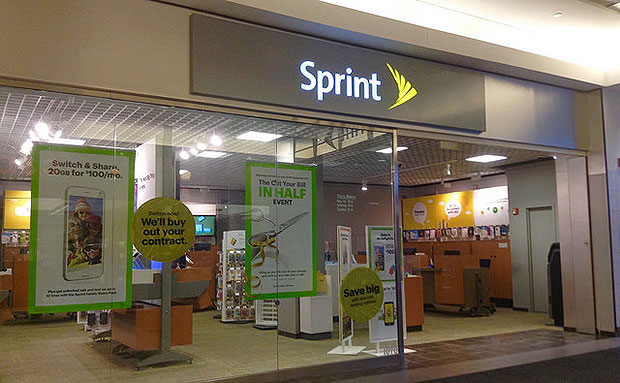Sprint Joins Rivals In Kicking Two-Year Phone Contracts To The Curb
Sprint's big pitch to consumers is that it offers truly unlimited data (in addition to unlimited talk and texting). However, it was Sprint's previous CEO, Dan Hesse, that pushed unlimited data as a point of focus. His replacement, Marcelo Claure, indicated earlier this summer that "there will be a time when it might not be economically viable" to offer unlimited data to consumers, and if that's the case, Sprint will have to find a way to stand out from the crown.
Right now it looks like Sprint is settling for parity. The nation's fourth largest wireless carrier is planning to eliminate two-year service contracts and move towards leasing smartphones to customers. It's a move that T-Mobile popularized as part of its "Uncarrier" movement, and earlier this month, Verizon said it was planning the same thing. When Sprint makes the switch, AT&T will be the only major wireless carrier in the U.S. pushing the old model.

Two-year contracts proved popular with consumers because wireless carriers would attach pricey smartphones at a hefty discount when inking a two-year deal. These days, carriers are toying with cheaper monthly plans while making customers responsible for the full retail cost of a smartphone, which they can buy outright or pay for in monthly installments.
This is something Sprint has been experimenting with since offering a lease option last year. According to Claure, just over half -- 51 percent -- of customers who purchased a new phone last quarter opted for the lease option. It's now Sprint's goal to completely abandon contracts by the end of the year.
Switching to a lease-based model opens up some interesting opportunities. For example, Sprint on Monday announced a new plan called iPhone Forever starting at $22 per month plus a monthly service fee. The plan allows customers to upgrade to the latest model iPhone every year so that they always have the latest model.
Right now it looks like Sprint is settling for parity. The nation's fourth largest wireless carrier is planning to eliminate two-year service contracts and move towards leasing smartphones to customers. It's a move that T-Mobile popularized as part of its "Uncarrier" movement, and earlier this month, Verizon said it was planning the same thing. When Sprint makes the switch, AT&T will be the only major wireless carrier in the U.S. pushing the old model.

Two-year contracts proved popular with consumers because wireless carriers would attach pricey smartphones at a hefty discount when inking a two-year deal. These days, carriers are toying with cheaper monthly plans while making customers responsible for the full retail cost of a smartphone, which they can buy outright or pay for in monthly installments.
This is something Sprint has been experimenting with since offering a lease option last year. According to Claure, just over half -- 51 percent -- of customers who purchased a new phone last quarter opted for the lease option. It's now Sprint's goal to completely abandon contracts by the end of the year.
Switching to a lease-based model opens up some interesting opportunities. For example, Sprint on Monday announced a new plan called iPhone Forever starting at $22 per month plus a monthly service fee. The plan allows customers to upgrade to the latest model iPhone every year so that they always have the latest model.

